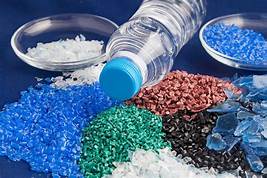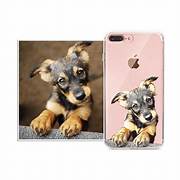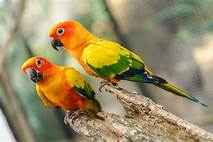What is Recycled PET?
Recycled PET (Polyethylene Terephthalate) is a type of plastic that has been processed and converted from waste PET products into reusable material.

Properties of Recycled PET
1. Durability: Recycled PET maintains the durability and strength of virgin PET. It's highly resistant to wear and tear, making it suitable for various applications.
2. Transparency: Recycled PET retains the transparent or semi-transparent qualities of virgin PET. This property allows it to be used in packaging where clarity is important.
3. Chemical Resistance: Recycled PET possesses excellent chemical resistance, making it suitable for packaging products that may come into contact with acids, bases, or other chemicals.
4. Food Safety: Recycled PET meets food safety regulations and can be used in packaging food and beverages without compromising the product's quality or safety.
Benefits of Using Recycled PET
1. Environmental Sustainability: Recycling PET reduces the environmental impact by diverting plastic waste from landfills and oceans. It conserves natural resources and helps minimize greenhouse gas emissions.
2. Energy Efficiency: Producing recycled PET requires less energy compared to producing virgin PET. This energy saving contributes to a more sustainable manufacturing process.
3. Cost-effectiveness: Recycled PET is often more cost-effective than virgin PET, making it an attractive option for manufacturers looking to reduce production costs while maintaining product quality.
4. Performance: Recycled PET performs similarly to virgin PET in various applications, including packaging, clothing, and automotive parts.
Applications of Recycled PET
1. Beverage Bottles: Recycled PET is widely used in the production of beverage bottles, including water, soda, and juice bottles. These bottles can be recycled and turned into new PET products.
2. Food Packaging: Recycled PET is used to make food containers, such as yogurt cups, salad containers, and microwaveable meal trays. These containers provide excellent protection for food products.
3. Clothing and Textiles: Recycled PET is transformed into fibers that can be used to create clothing, carpets, and other textile products. These fabrics are durable, wrinkle-resistant, and eco-friendly.
4. Automotive Parts: Recycled PET is increasingly used in automotive applications, including car bumpers, interior components, and soundproofing materials. It offers lightweight and durable solutions for automotive manufacturers.
5. Construction Materials: Recycled PET can be incorporated into construction materials, such as roofing tiles, insulation, and decking. These products contribute to sustainable building practices.
Recycled PET, a versatile and environmentally responsible material, plays a crucial role in the circular economy by reducing waste, conserving resources, and providing a cost-effective alternative to virgin PET. Its diverse applications demonstrate the potential of recycling and upcycling plastic materials to create valuable products that benefit both the environment and various industries.
Declaration: All article resources on this website, unless otherwise specified or labeled, are collected from online resources. If the content on this website infringes on the legitimate rights and interests of the original author, you can contact this website to delete it.




